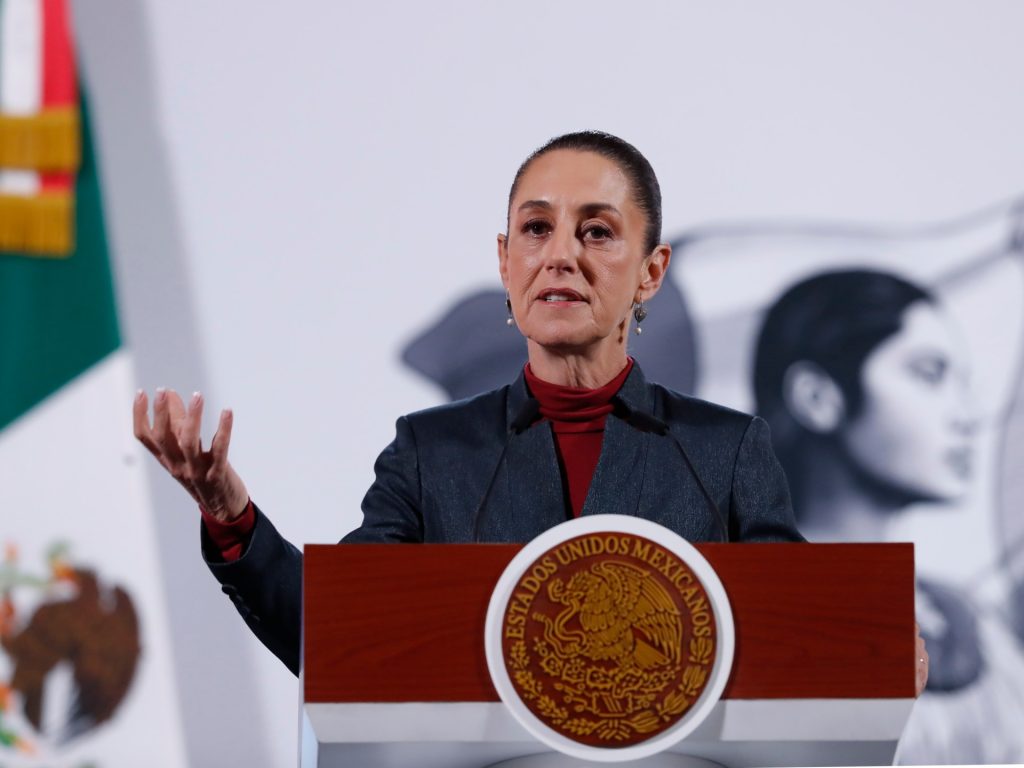The announcement by Mexico’s president regarding a formal complaint against Google sparked a flurry of online discussions and media attention. The catalyst for this controversy was Google Maps’ alleged alteration of the geographical label “Gulf of Mexico” to “Gulf of America” for users located within the United States. While the veracity of this change and its duration remain unconfirmed, the president’s statement ignited a broader debate about geographical nomenclature, digital representation, and the perceived power dynamics between nations and technology companies. The president’s accompanying proposal to rename North America as “Mexican America” further fueled the conversation, highlighting the historical and cultural connections between Mexico and the continent.
The incident raises several significant questions. Firstly, it underscores the potential for technological platforms to influence perceptions of geography and ownership. If Google Maps indeed changed the name, even temporarily, it demonstrates the power these platforms hold in shaping understanding of the world. Such changes, whether intentional or accidental, can inadvertently reinforce certain narratives and diminish others. This raises concerns about the responsibility of tech companies to ensure accurate and neutral representation in their digital cartography. The incident also highlights the complexities of online information management and the potential for discrepancies in information presented to different user groups based on location or other factors.
Beyond the immediate issue of the name change, the president’s response and the subsequent reactions reveal a deeper layer of historical and cultural sensitivities. The name “Gulf of Mexico” carries significant historical weight, reflecting Mexico’s long-standing presence and connection to the body of water. The proposed change to “Gulf of America,” regardless of its intent, potentially undermines this historical significance and could be interpreted as a form of digital erasure. The president’s counter-proposal to rename North America to “Mexican America” reflects a similar sentiment, emphasizing Mexico’s historical and cultural contributions to the continent. This exchange reveals how geographical names are not merely descriptive labels but carry deep symbolic meaning, reflecting cultural identity, historical narratives, and often contested territorial claims.
The controversy also illustrates the increasing intersection of geopolitics and technology. The digital landscape is becoming a new arena for asserting national identity and territorial claims. The president’s response can be interpreted as a way of asserting Mexico’s sovereignty and challenging what is perceived as a slight against its historical and cultural heritage in the digital realm. This highlights the growing importance of digital platforms in shaping international discourse and the potential for these platforms to become battlegrounds for geopolitical disputes. The incident raises questions about the appropriate mechanisms for resolving such disputes in the digital age.
The proposed renaming of North America to “Mexican America” also adds another layer of complexity to the discussion. While it might be seen by some as a symbolic gesture aimed at reclaiming historical narratives and highlighting Mexico’s contributions, it also has the potential to be interpreted as a provocative move, further fueling tensions. The question of naming conventions on a continental scale raises complex issues of historical accuracy, cultural sensitivity, and political implications. Whose history and whose perspective should be prioritized in naming such vast geographical entities? The proposal underscores the challenges of finding universally accepted nomenclature in a world of diverse historical interpretations and cultural sensitivities.
Ultimately, this incident serves as a microcosm of larger debates about digital power, historical representation, and cultural identity in a globalized world. It highlights the importance of accuracy and neutrality in digital information, the need for transparency in online platforms’ operations, and the complexities of negotiating historical narratives and cultural sensitivities in the digital age. This incident also emphasizes the need for open and constructive dialogue between nations and tech companies to address the challenges arising from the intersection of geopolitics and technology. The incident underscores the importance of fostering intercultural understanding and developing mechanisms for resolving disputes that arise from differing historical interpretations and cultural perceptions in the digital sphere.










